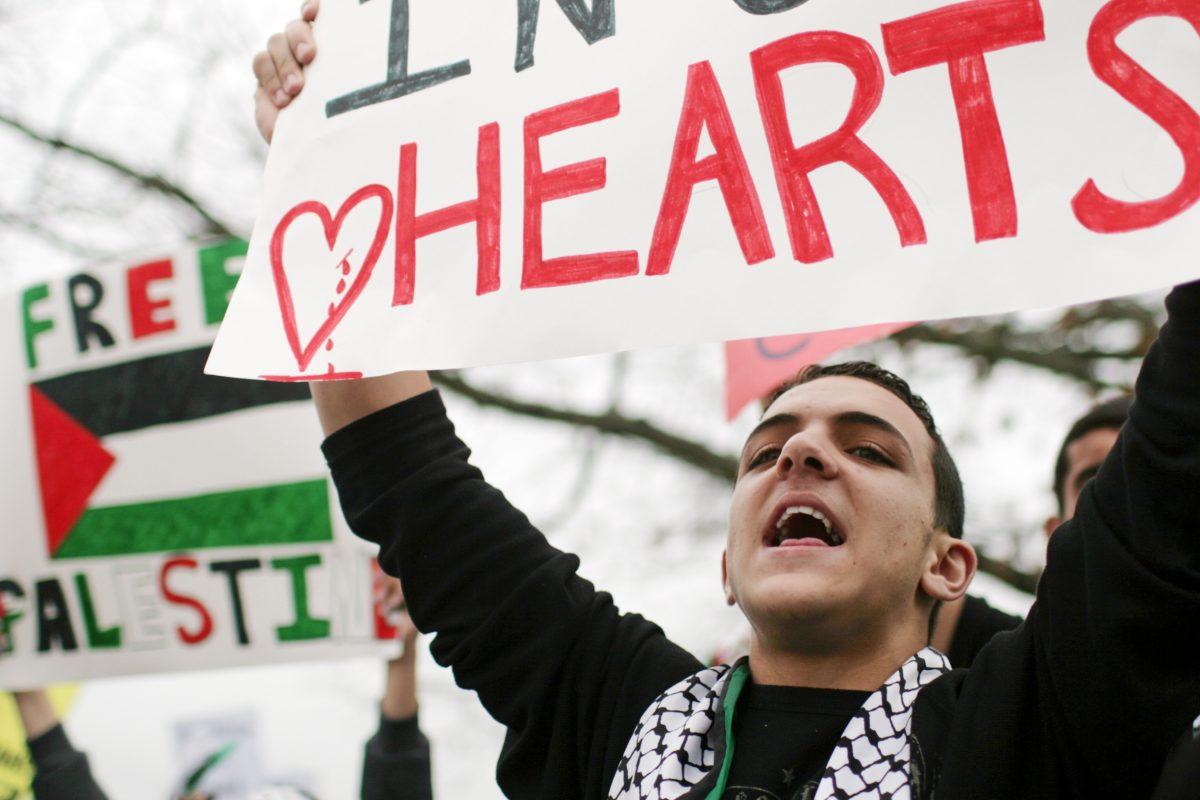Since the ongoing conflict between Gaza and Israel heated up on Dec. 27 when Israel began an air assault of Gaza, students in Raleigh have felt the impact of the fighting.
When Israel launched its ground offensive into Gaza days later, the conflict intensified.
Palestinian supporters held a protest at the Bell Tower Monday afternoon to show their support for Gaza.
Sara Haddad, a junior in biochemistry and president of the Muslim Student Association, said the protest allowed students to voice their opinions about the conflict.
“Its goal was to protest the humanitarian problems going on,” Haddad said. “I wasn’t there the whole time but from what I saw it was a peace rally. It was trying to push to stop the fighting to find a solution.”
Ben Mazur, a senior in religous studies and Israeli supporter, said he believes Hamas is the most to blame for the current situation.
Hamas is the largest Palestinian movement and has held power within the Palestinian Authority since 2006.
Israeli officials claim Hamas has fired rockets into Israel for months, forcing them to respond with military action in late December.
“My overall reaction is that Israel would have continued the cease fire, but since Hamas broke it Israel has every right to defend itself,” Mazur said.
Moran Aframian, a senior in textile and apparel management, said she looks at the conflict differently because she was born in Israel.
“As a former Israeli and as a Jew, the fact that I have family living in Israel and the fact that rockets from the Gaza Strip can reach where I used to live, that’s frightening,” she said. “And I also have cousins who are in the army.”
Aframian said she understands both sides of the conflict despite her pro-Israeli stance.
“I understand that what is going on is awful and terrible and I would never wish that upon anyone,” Aframian said. “But at the same time I have loyalty to my homeland and my family and the people who struggle to live life peacefully over there.”
Haddad said the conflict between Israel and Palastine will likely remain the same until outside countries push for humanitarian aid.
“There is going to have to be a humanitarian outcry,” she said. “It looks like it’s not going anywhere on the military or political outlook. It’s really bad.”
Aframian said she isn’t sure what can be done to bring the fighting to a stop.
“The United States has stepped in in the past and the United Nations has stepped in in the past and neither one of them have helped either side come to an agreement,” she said.
Mazur disagreed and said outside entities need to become more involved.
“I don’t see a cease fire between the two of them,” he said. “Someone is going to have to step in. I don’t see the United States getting involved until February after Obama is in office.”
The growing conflict between Gaza and Israel is something which Aframian said puts students in a tough place.
“In reality, I’d like for both nations to live happily together and have trade between borders,” she said. Hopefully one day that will happen. It’s hard because you don’t know what to say. I don’t know if I should be on the Israeli side or on the Palestinian side.”








